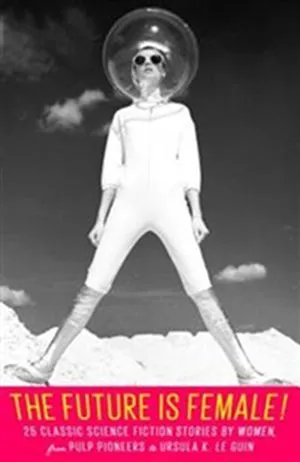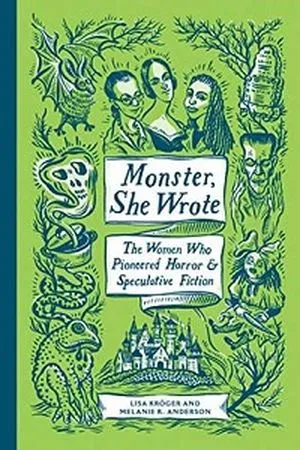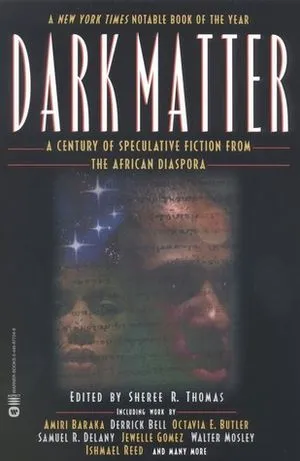
6 Books Celebrating Women’s Early Contributions to Fantasy and Sci Fi
There is a common misconception that after Mary Shelley, the science fiction and fantasy genres were completely dominated by men until relatively recently. But this is patently false. Women have been writing horror, science fiction, speculative fiction, surrealism, and fantasy since the earliest days of strange tales, and they’ve been doing it throughout the genre’s existence.
Luckily, some enterprising editors have refused to let the misconceptions stand. Some have brought together collections of these earlier stories, stories that might be lesser known, that went out of print, or that just need a new, modern spotlight. Others highlighted the enterprising women of the genre, or paid tribute to its pioneers, or brought together the earliest tales we have that featured women. The tales featured in these anthologies of early speculative fiction are queer, imaginative, and daring. These collections highlight women’s early contributions to the genres we know and love.

The Future is Female! 25 Classic Science Fiction Stories by Women, from Pulp Pioneers to Ursula K. Le Guin, edited by Lisa Yaszek
Yaszek has filled a huge gap with this collection of 25 stories that span from the 1920s to 1960s. Yaszek’s intro is brilliant, summing up science fiction’s eras and how women contributed throughout. These stories are fantastic throughout—”The Miracle of the Lily” (1928) by Claire Winger Harris addresses how food shortages could be disastrous; “Baby, You Were Great” (1967) by Kate Wilhelm is a horrifying story about media consumption, voyeurism, and media violence; “In Hiding” (1948) by Wilmar H. Shiras was a formative influence for the X-Men universe; and “The Black God’s Kiss” (1934) by C.L. Moore is a dark, eldritch horror revenge tale. This is a must read.
Weird Women: Classic Supernatural Fiction by Groundbreaking Female Writers, 1852–1923 edited by Leslie S. Klinger and Lisa Morton
Did you know that Louisa May Alcott and Frances Hodgson Burnett wrote horror tales? Klinger and Morton have gathered stories of early female writers, some remembered, others relatively forgotten, to show how they pioneered many aspects of the genres we know today as they worked to support families on their writing. Many of the tales are ghostly and dark as they touch on the cruel realities of womanhood and motherhood; many of the tales have rich queer subtext; and in the midst of all of it, mad scientists, curses, werewolves, demons, and mummies are waiting in the shadows.

Monster, She Wrote: The Women Who Pioneered Horror and Speculative Fiction by Lisa Kröger and Melanie R. Anderson
This book left me with a reading list of 30 plus books that I needed to check out as soon as I could. Kröger and Anderson not only dig into the history of the women of these genres, but dig deep, really highlighting the lesser known authors and queer women who contributed to dark, strange tales over the decades (did you know Daphne du Maurier was queer? I didn’t, before this book!). If you want to head back into the history of these genres, to expand your horizons to the earlier authors, this book is a fantastic way to start.
Octavia’s Brood: Science Fiction Stories from Social Justice Movements edited by Walidah Imarisha and adrienne maree brown
This collection of fiction, in which writers use the genre of radical speculative fiction to envision social change and outlooks for the future, is rooted in the science fiction of a pioneer of the genre, Octavia Butler, author of The Parable of the Sower among many others. The anthology pays immense tribute to the writers who have always used the genres of speculative fiction to reimagine and reshape the world around us, to imagine the possibilities of different futures for the human race.

Dark Matter: A Century of Speculative Fiction From the African Diaspora edited by Sheree Renée Thomas
This superb collection, which won the 2001 and 2005 World Fantasy Award for Best Anthology, highlights collected works by some of the best African American writers in the SFF genres. From Nalo Hopkinson to Tananarive Due to Octavia Butler and more, this collection introduces the sheer scope of African American contributions to the speculative fiction genre to readers who may not know many of these authors. Thomas’s collection highlights the stories of women of color who have been writing speculative fiction for a century.
Angela Carter‘s Book of Fairy Tales
This book is my Bible. Angela Carter, fantasy legend in her own right, gathered these folk and fairy tales from around the globe. It is a diverse collection that features stories specifically focused on women—wicked, naive, strong, cunning, magical, and everything in between. I’m a lover of fairy tales, and yet I’d read few of these before picking up Carter’s 500-page tome. From an Inuit woman who becomes a man to marry her daughter-in-law to a young woman who plays pranks on a man and his brothers, these stories are all about women in their many forms, gathered from folk and fairytales from around the globe. While it may seem like a strange addition to this list, I included it for a reason: this book of fairytales reminds us that women have always been central to the creation, telling, and narratives of fantastic stories.










